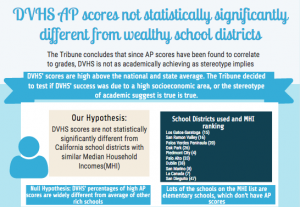Finding validation: bright screens versus black mirrors
September 28, 2018
“Just don’t compare yourself to others and you’ll be fine,” my college-bound friend said. It seemed relatively easy at the time; I didn’t truly understand the importance of that statement until my junior year, aka the one where everyone goes “I’m not going to an Ivy League!”
The first thing that pops into minds when they hear the word “comparison” is grades (obviously), but there are several levels to comparison that go beyond an SAT score. For many it is grades, yes. But to several others, it is also body image, lifestyle and success. Success is different to each of us, but I urge you to think about the roots of that vision. To put this into perspective, think about your dreams when you were seven years old. Maybe you wanted to be an astronaut. Maybe you wanted to be popular. Maybe you wanted to be the smartest person at school.
Now think about your dreams today. How and why has that vision changed? Chances are, your ideal future plan has developed based off of the people around you. In other words, vision is relative to environment, and environment is Expectation. We are constantly immersed in the world around us — it is how we learn what is “wrong” and what is “right.” It is how we learn what is acceptable.
When we were younger, we were oblivious to our environment, so we didn’t need to meet Expectation because consequence simply didn’t matter. We were much more independent in our thinking compared to now.
Now, however, we are caught up in a perpetual race to be the “best” — it’s a twisted version of the familiar concept of survival of the fittest. When we make decisions, we examine a couple of factors: the views of our peers and, arguably more importantly, the effect on our comparative resume. It is not enough to be simply be satisfied with ourselves; our definition of self satisfaction has evolved.
Narcissism is an inherent part of who we are as humans — there have been countless studies showing that it is one of our instincts: “Narcissism, defining our self-worth, and validation has always been a part of human nature; however social media has created digital and seemingly endless means of having our basic needs for acceptance met” writes Francine Edwards of the Athens Journal of Mass Media and Communications in 2017.
Combined with a growing desire to compete for success, narcissism causes individuals to go to extreme lengths to make themselves appear better and others appear worse. The problem is only exacerbated by social media, allowing us to compare every aspect of our lives to a thousand people’s heavily filtered ones.
And that’s where this whole comparison scale comes in. When seeing everyone else share the highlights of their life, the instant reaction is to see if your life is up to par. “Am I meeting the Expectation?”
I presume that several of us feel that the Expectation society places on us is already too high. And when social media is added to the mix, a new environment is created. One where everyone crops out the bad and creates a facade of perfection that breeds inadequacy.
Consequently, people doubt themselves. They change their decisions, and they change themselves. Then, they post on social media, hoping the collective verdict has changed. And if it hasn’t, they pursue this constant battle to improve themselves and meet impossibly high standards of success. If everyone else thinks you are good enough, it means, without a doubt, you are good enough.
I don’t think people realize how flawed that analysis is.
In her article “Mirror, Mirror,” Rebecca Webber explains why these comparisons are so inaccurate.
“People are most likely to share peak experiences and flattering news about themselves … The narrow, distorted slice of reality that is displayed on social media is almost perfectly constructed to make viewers feel deficient and discouraged.”
The comparisons slowly become bizarre, because you’re comparing yourself to a) only the best version of a person’ life that is most likely very inaccurate and b) several people that are all so different! But when you see all of these success stories, you can’t help but feel inadequate when your accomplishments don’t seem as impressive as those of your peers.
We want to be good enough. We want others to think that we are good enough. Unlike grades and scores and other numerical quantities, success is impossible to measure in real life. Social media, however, gives us the ability to quantify it, so the number of likes, comments and buzz we create on social media serves to validate us.
To avoid this, awareness is the first step — you can’t solve a problem without knowing about it. But something needs to be done. Some of you who read this will consider it for maybe five minutes, an hour if I’m lucky. The rest of you will carry on with your lives without as much as a second thought.
What we need is active disengagement. In my eyes, there are two ways you can go about doing this. You can recognize when you are falling into the hole of comparison and have the self control to stop caring about other people. Alternatively, you need to stop the flow of information that allows those comparisons to happen. Or you can be in the middle.
Doing the latter personally works better for me. However, the main challenge is taking the time to identify and eliminate deleterious aspects of your life. To some extent, I think we are all aware that this constant comparison is detrimental to our mindset on our own image. Despite this we succumb to our innate need for validation.
By isolating ourselves from the toxic environment cultivated by competition and social media, we can realize what our vision and dreams truly are.. Embrace individuality and subjectivity — it’s there for a reason. Stop living up to the Expectation and find yours.


